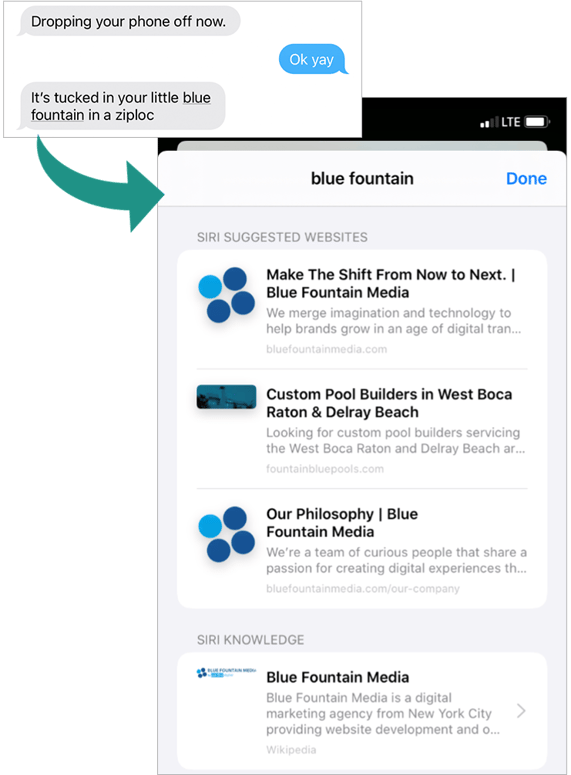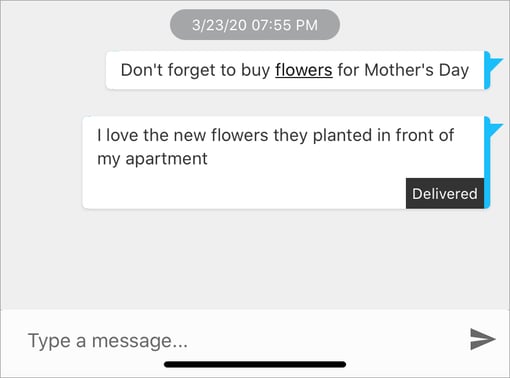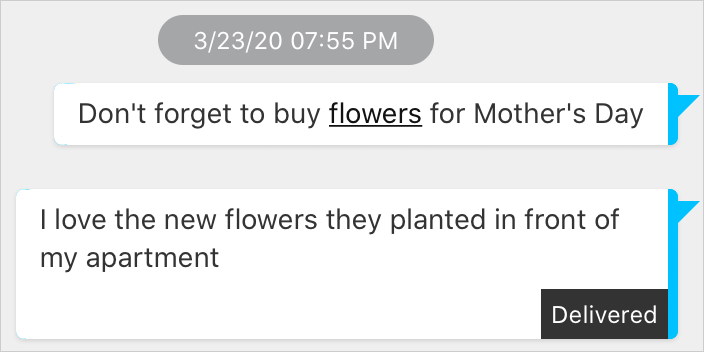If the most important mobile interface of the future is messaging, and it is, then Facebook paying $16 beeelion dollars for WhatsApp seems like a bargain today, and it is.
Long ago, texting replaced voice as the person-to-person (P2P) communication medium of choice, and now text is expanding as an interface to businesses via chatbots, or what is called "application-to-person" (A2P) messaging. This is going to be a great opportunity to monetize what is essentially another advertising channel, and an entire ecosystem of vendors is spinning up to build out all the infrastructure and connections to make it happen. And I should say that I am happy with the evolution of “text as the primary interface” thing, but really, there is one big reason, often overlooked, why text messaging is the holy grail of monetization: People recommend stuff to each other every day.
This is NOT a blog post about over-the-top (OTT) messaging providers vying with traditional telecom players who are now evolving their antiquated SMS infrastructure to the more current Rich Communication Services (RCS) infrastructure that will, theoretically, usher in a new era of delightful text messaging experiences for consumers.
This IS a blog post about the single biggest opportunity staring everyone in the face: Monetizing existing P2P communication using Messaging Contextual Shortcuts (MCS.)
Messaging Contextual Shortcuts (MCS) are familiar to most people as the subtle underlines in their text messages that show up to help the user navigate more easily between functions on their mobile devices. For instance, “let’s have a meeting tomorrow at 11am” helpfully takes you to your calendar if you tap on the underline, and “meet me at 123 Elm St” invokes your map app. MCS is a UX improvement that saves users time and provides a more seamless mobile experience.
Messaging Contextual Shortcuts for Commerce
What happens when you apply MCS to commerce, helpfully linking users to merchants or brands to similarly create a more seamless mobile experience? “Let’s stay at the Marriott in Del Mar” would take you to the Marriot Del Mar page to make it easier to book that hotel. Would users appreciate this functionality? That was the question at the heart of a cross-carrier preliminary trial conducted in 2020, and the answer was a resounding “YES!”
Probably the most interesting finding was that consumers already do this. 99% of participants said that they have sent or received a recommendation from their phone, and 96% said that they have made a purchase from their mobile device based on such a recommendation! Nielsen estimated that people reference products and brands 2.4 billion times a day in social messaging, and digital word-of-mouth drives up to $2 trillion in global commerce. MCS just makes it easier to do what consumers are already doing.
Context Makes or Breaks Messaging Contextual Shortcuts
What the trial also found is that it is crucial to get it right. The “contextual” part of Messaging Contextual Shortcuts is key. If the technology works as reliably as, say, auto-correct, then people will embrace it.
Apple is testing this with mixed results. In the example below, a colleague dropped off a test phone at my house and put it near the “blue fountain” in my entryway. That generated a link to either a media company of some sort, or a swimming pool contractor in Florida. (First of all, I am in San Diego, but also neither one of these merchants were at all relevant to the text message.) This approach will fail with consumers.

Slapping a link into a message without considering context is just...no.
Getting MCS Right
Wildfire gets it right with our MCS product, which detects purchase intent within the context of the message and only presents an underlined link to the users when contextually relevant. In the example below, Wildfire knows the difference between “flowers” and flowers in a commerce context. The result is a delightful UX improvement that consumers love!

Messaging Contextual Shortcuts link only when they should, to exactly what they should.
If Facebook does this right with WhatsApp, they win, hard stop. OR, The company that gets this right kills Facebook because they are going to make a lot of consumers happy, and will make a lot of money along the way.
I do not know if the winner will be Apple, Google, Samsung, Facebook, mobile operators in general, or some upstart messaging company we have not heard of yet, but I DO know that getting the technology right will be key, and Wildfire saw this coming years ago and has the patents to prove it.
The leading telecom industry analyst, Mobilesquared, just put out a white paper on MCS, and Wildfire is featured. I am proud of everything we do here at Wildfire, and MCS is yet another consumer touchpoint of our white-label platform that aims to help our partners monetize commerce everywhere.


